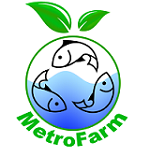
ECOCLASS
Metro Farm provides customized aquaponics learning solutions for schools and educational institutions. The EcoQube is a compact and innovative aquaponics learning kit that allows individual learning in the classroom environment. Teachers can use the EcoQube to teach and reinforce the science concepts through real-life applications to nature. The EcoCLASS is an aquaponics learning platform that allows students to see, explore, touch and feel for themselves what it means to grow crops and rear fish themselves and allow them to understand and appreciate urban farming. Through aquaponics, they can learn about sustainability farming and living methods.
EcoQube
Students can develop the right attitude and values through learning with the EcoCLASS. Like a piece of blank paper, students will be able to absorb faster and learn through self-exploration and personal involvement in their learning. Students can readily observe the growth of the crops and fishes as they come to classes daily. The students can gain personal fulfilment by taking ownership to set up their personal tanks. They can design and setup their own ecosystem based on their own creativity and understand how sustainable systems work.
They will learn to tap on their personal responsibility and take personal ownership of the EcoQube Learning Kit that they are in charge of. Through the EcoQube Learning Kit, students will be introduced to the life cycles of the plants and fishes, including the natural processes such as seed germination, plant nutrition, respiration, photosynthesis, nutrient generation through fish waste and controlling of water parameters and conditions that is essential for optimum plant and fish growth.


Smart Sensors
With advances in state-of-the-art smart automation and monitoring technologies, it is possible for students to tap on such technologies to monitor and observe the various factors that affect the growth of fishes and plants. They can control and vary different factors such as simulated sunlight, moonlight, water pH, light intensity, temperature, nutrients and even ammonia to observe the impact of the changes on their EcoQube.
